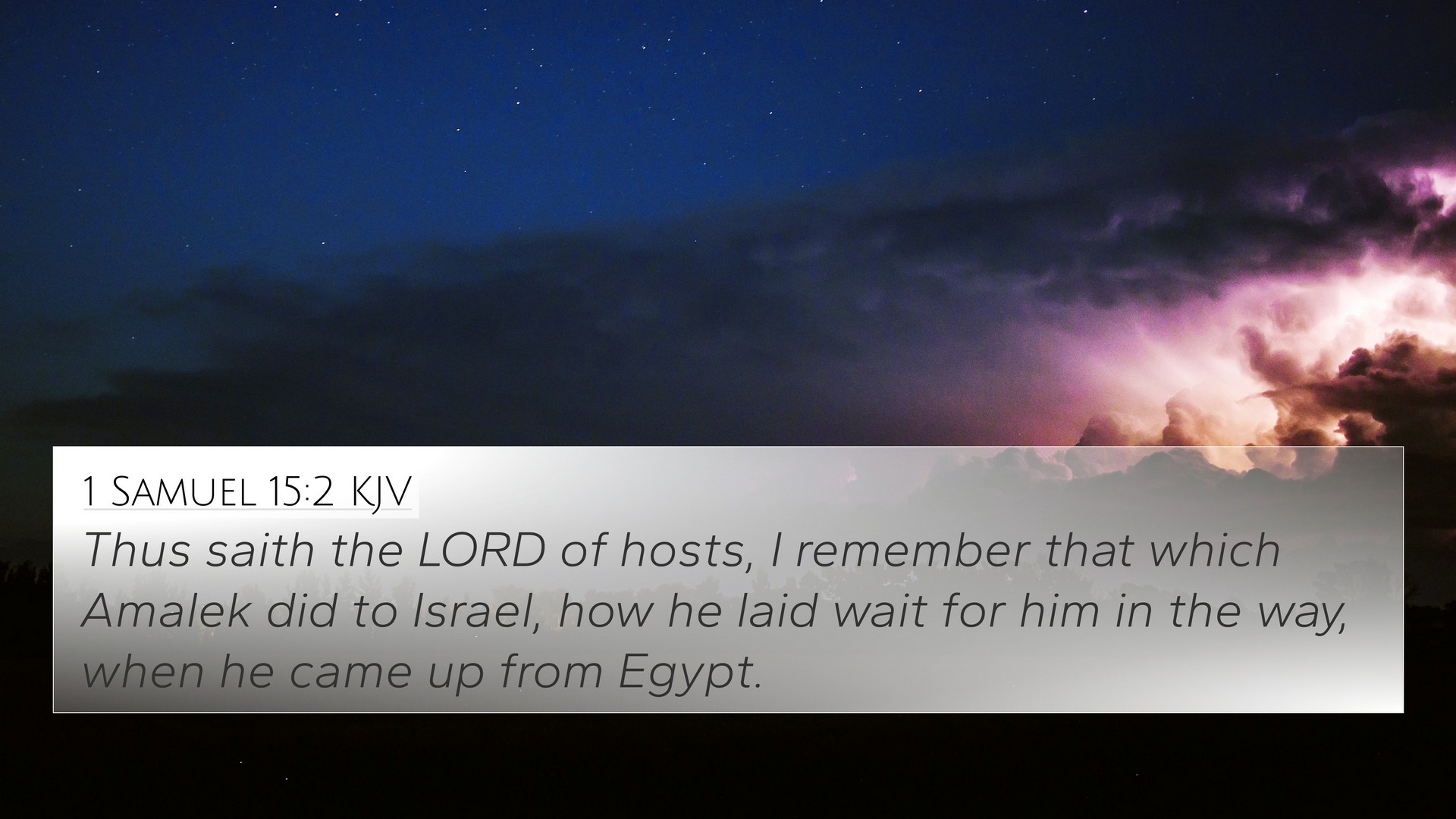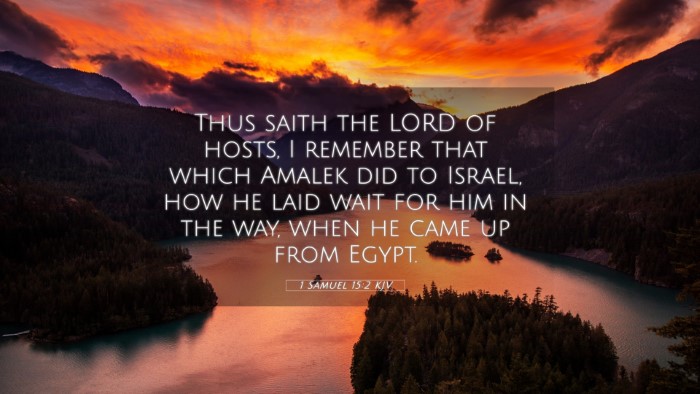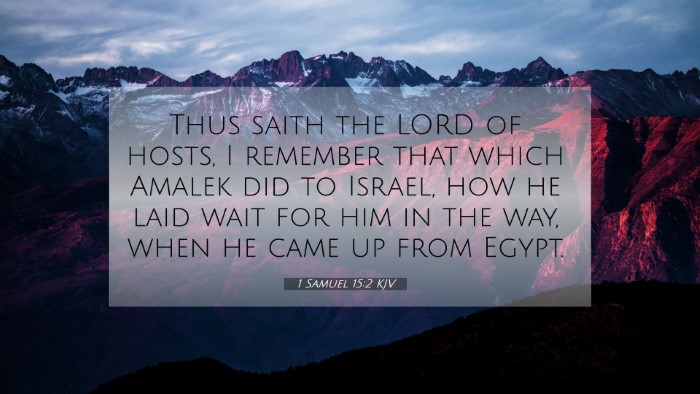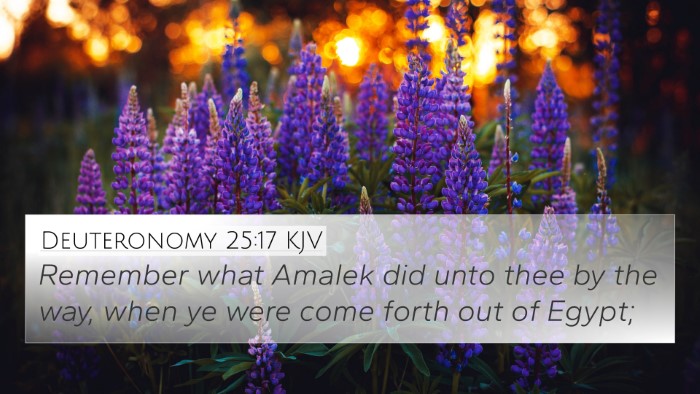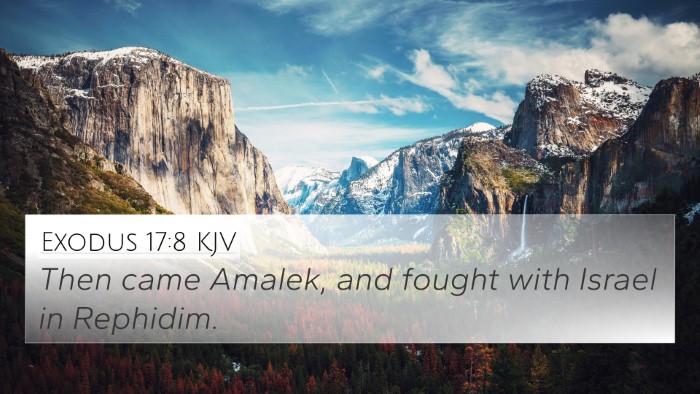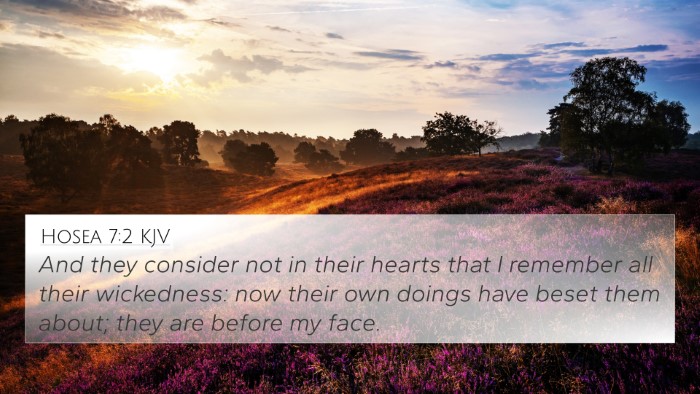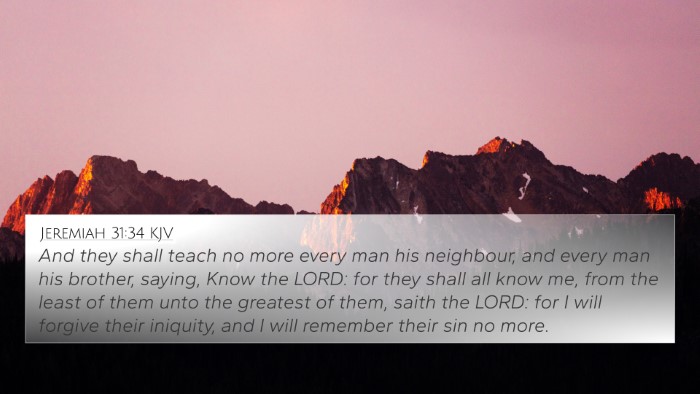1 Samuel 15:2 - Understanding the Divine Command
1 Samuel 15:2 states: "Thus saith the Lord of hosts, I remember that which Amalek did to Israel, how he laid wait for him in the way, when he came up from Egypt."
This verse serves as a declaration from God, recalling historical events that shaped His covenant with Israel. It signifies God's awareness and remembrance, and it sets the stage for the divine mandate that follows. Below, we explore insights from historical commentaries to better understand the implications of this verse.
Commentary Insights
-
Matthew Henry's Commentary:
Henry highlights the importance of memory in God's dealings with humanity. He emphasizes that God's remembrance is not merely local but encompasses all events associated with the covenant people. This call to recall how Amalek acted against Israel illustrates God's justice and the need for accountability. God's command, as recounted in this context, directs King Saul to carry out divine judgment against Amalek.
-
Albert Barnes' Notes:
Barnes elaborates on the historical significance of Amalek. This ancient enemy of Israel was a symbol of opposition to God’s people. The mention of Amalek's ambush is a reminder that God defends His people, and the actions of Amalek warranted punishment. Barnes views this as a call for Israel to execute justice against evil, reflecting God's nature to uphold righteousness.
-
Adam Clarke's Commentary:
Clarke provides a detailed analysis of the events leading to this divine command. He notes the historical context of the Amalekite attack during Israel's Exodus from Egypt. Clarke insists that this attack was driven by malice and signified a broader spiritual battle. He underscores that God’s order was not arbitrary but a fulfillment of divine justice against a people who had persistently opposed God’s covenant community.
Connection to Bible Verses
1 Samuel 15:2 is deeply interwoven within the narrative of Scripture. Here are several Bible cross-references that illustrate the connections and themes:
- Exodus 17:8-16: This passage recounts the initial battle with Amalek, showcasing God's command to Moses to remember this fight.
- Deuteronomy 25:17-19: God commands Israel to remember what Amalek did and to erase their memory from under heaven, underscoring the significance of their actions.
- 1 Chronicles 4:43: This verse references David's military engagements, further establishing the context of Israel's historical battles against Amalek.
- Romans 15:4: Paul encourages believers to remember past events of scripture for their instruction, illustrating God's consistent character throughout history.
- Michael 2:16: This passage reflects God's justice in overcoming evil, paralleling the themes found in God's command to Saul.
- Judges 6:1-6: The recurring theme of Israel's enemies reflects the ongoing battle against those opposed to God’s covenant.
- Hebrews 10:30: This affirms God's promise to avenge His people, linking between the justice of God in the Old Testament and its application in the New Testament.
Thematic Connections and Analysis
The command given to Saul in 1 Samuel 15:2 opens a broader discussion regarding the themes of justice, remembrance, and divine authority. These themes echo throughout Scripture and resonate in various contexts.
Justice
The principle of divine justice is central to understanding God’s command to Saul to deal with Amalek. God is portrayed as a just ruler who will not allow evil to go unpunished. This theme is compounded by the fact that the Amalekites were notorious for their unprovoked assaults on Israel, marking them as deserving of God’s wrath.
Memory
Memory plays a significant role in God’s relationship with His people. By invoking the past actions of Amalek, God emphasizes the importance of remembrance in shaping spiritual identity. Each recalled event serves as a moral lesson for Israel, urging them to remain steadfast in righteousness.
Divine Authority
God's authority is unquestioned in this command; He does not seek consent but delegates responsibility to Saul. This establishes a framework of accountability for leadership and governance in Israel, which remains significant today.
Cross-Referencing Biblical Texts
Understanding 1 Samuel 15:2 in relation to other biblical texts enriches our study through a comparative Bible verse analysis. Here are tools and methods for effective cross-referencing:
- Bible Concordance: Use a concordance to find related verses systematically.
- Bible Cross-reference Guide: Reference guides offer insights into themes and connections across books.
- Cross-reference Bible Study: Engaging in study sessions with focus on similar themes across verses can uncover deeper meanings.
- Identifying connections between Old and New Testament: Explore how similar concepts translate between testaments, such as God's justice and remembrance.
Conclusion
1 Samuel 15:2 challenges us to reflect on the significance of divine commands, the historical actions of adversaries against God’s people, and the unyielding nature of God’s justice. By utilizing tools for Bible cross-referencing, one can uncover layers of meaning and appreciate the interconnectedness of biblical text. This verse not only serves to inform about the past actions of Amalek but invites readers into a deeper understanding of God's character and the moral imperatives that govern the lives of His people.
